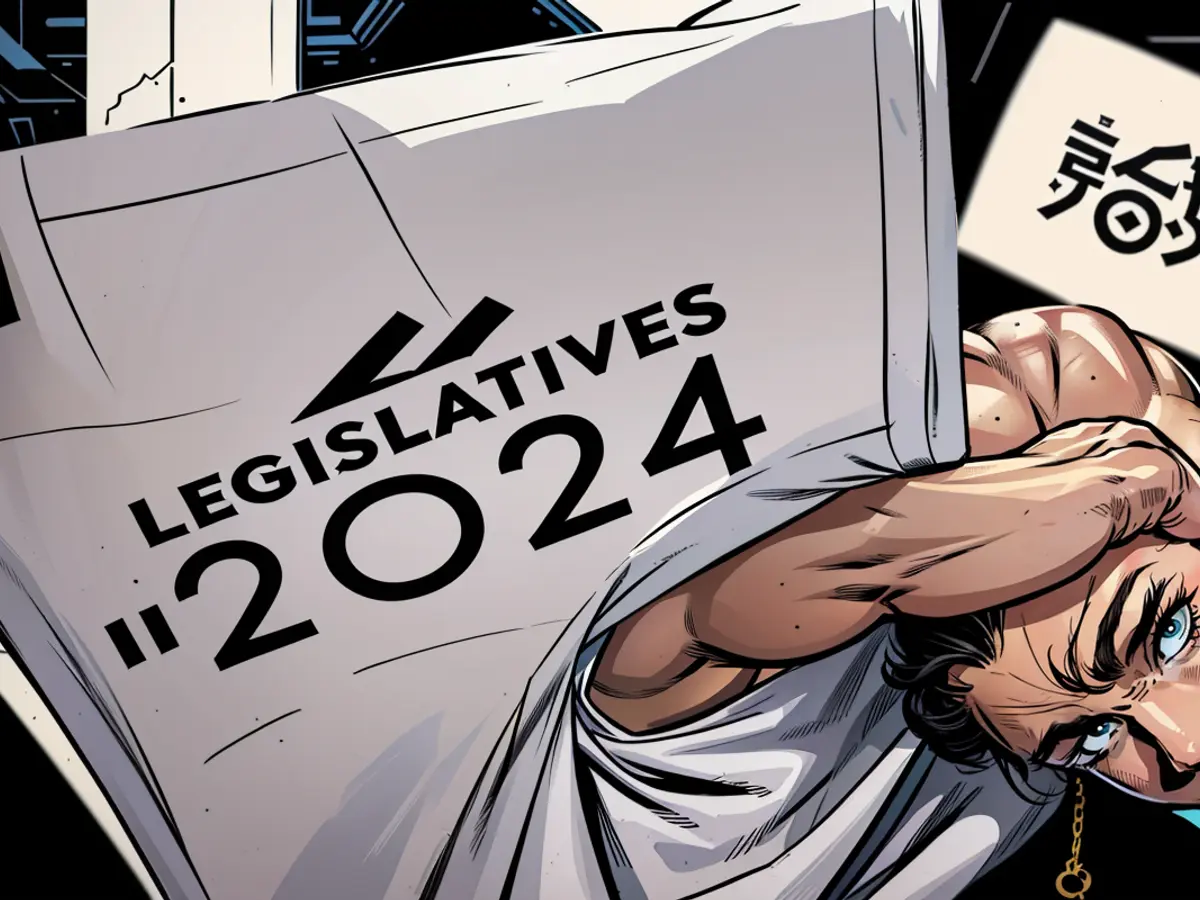French right-wing populists' prospects worsen as candidates withdraw
Due to high turnout in the first round of elections on Sunday, over 300 out of 577 constituencies qualified three candidates from the National Rally (RN) for the runoff. In nearly half of these constituencies, the RN candidate was in the lead. If the third-place candidates were to withdraw, this would decrease the RN candidate's chances of winning the runoff.
"In the end, the French decide according to their conscience and not election recommendations," said a presidential advisor. "But mathematically, the risk of an absolute majority for the RN is reduced," he emphasized.
The left-green New Popular Front coalition called for their candidates to withdraw, while the government camp showed signs of division. Several leading representatives spoke out against handing over votes to left-populist candidates, even if it meant preventing the Rassemblement National from winning. The largest group within the left-green coalition is the left-populist party La France Insoumise (LFI).
The candidates who qualified for the second round have until 18:00 to decide on their participation. Those who received votes from at least 12.5% of registered voters in the first round are eligible for the runoff on July 7.
The right-wing populists have declared that they intend to form a government even without an absolute majority. They plan to involve supporters from other parties and representatives of civil society, said former party leader Marine Le Pen to France Inter on Tuesday. "It will be a competent government," she emphasized. "If we get a majority, we will of course do what the voters have elected us for."
Le Pen thus deviated from the previous stance of party chief Jordan Bardella, who only wanted to take the premiership in the event of an absolute majority. "If we have approximately 270 seats and still need 19 deputies, we will approach others," said Le Pen. "Several right, but also left-wing deputies have shown a proximity to our positions."
However, reports are increasing about RN candidates raising doubts about their competence. One candidate withdrew from the runoff after a photo of her with an NS Luftwaffe umbrella with a swastika surfaced. Ludivine Daoudi had come in second in the first round in the northwestern Calvados region with 20%.
Another RN candidate may be unable to take office if elected in the second round due to psychological issues, requiring a legal guardian. The 65-year-old had come in second place in the western Jura region with 33%.
An RN candidate in the Mayenne department dismissed racism charges against her party by stating that her dentist was Muslim and her ophthalmologist was Jewish. Another candidate had attracted attention a few years ago with an armed hostage-taking at the Ernée town hall.
In the upcoming runoff on Sunday, the distribution of seats in the National Assembly will be decided. For an absolute majority, 289 out of 577 seats are required. The right-wing populists were in the lead in the first round in 297 constituencies. The consequences of the withdrawal of numerous candidates in constituencies where three candidates advanced to the second round are still unclear.
- Emmanuel Macron, the incumbent President of France, is closely watching the developments in the Parliamentary election, aware of the potential impact on his power.
- The Rassemblement National (RN), led by Marine Le Pen, is confident of securing better prospects in the run-off election, thanks to their strong performance in the first round.
- Sunday's run-off election in France is a crucial test for the right-wing populists, as they aim to takeover power without an absolute majority, planning to involve supporters from other parties and civil society.
- Several candidates from the National Rally (RN) are facing scrutiny ahead of the run-off election, with doubts being raised about their competence and allegations of racism against the party.
- If the right-wing populists fail to secure an absolute majority in the Parliamentary election, they will need to negotiate with other parties to form a government, potentially including left-wing deputies who share some of their positions.







